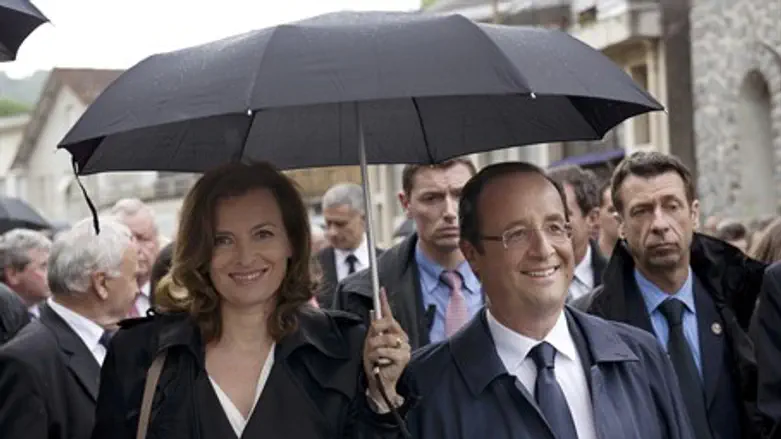
As we approach the second round of the French parliamentary elections, it still looks as though the Socialists will capture an outright majority in the National Assembly. There were, however, a couple of developments this week that gave their conservative rivals, the UMP, some hope that they might do better this Sunday than a week ago.
For one, the European debt crisis inched closer to France this week. It is now clear that the bailouts of the Spanish banks did not even achieve the usual short respite that accompanies new financial initiatives.
Spanish debt now commanded 7% interest, putting Spain clearly in bailout territory as soon as the Spanish government will not be able to sustain the financing of Spanish debt. With Spain in the danger zone, investors zeroed in on Italy, expected to be next in line for a bailout.
This creates a sense of foreboding that France could be exposed as well.
The basic Socialist advantage was that they could count on reinforcements from other parties of the left on the second round, as occurred during the presidential vote. There appears to be some voter apathy among parties of the left.
In the presidential vote giving the boot to Nicholas Sarkozy wasn't enough of an incentive to come out on the second round. Some of the socialist allies feel that they will have nothing to show for the Socialist victory.
The UMP was agonizing over how to handle the National Front in the legislative elections. When the National Front vote fell to below 14% on the first round, this meant that National Front candidates could only create a three-way contest in 60 districts-- not what the National Front has hoped for and not what the UMP had feared.
According to polls, 66% of the UMP rank-and-file wanted an alliance with the National Front on the second round. The UMP leadership would not go along with this sentiment, fearing that a National Front parliamentary breakthrough could help propel the National Front into the pole position on the French right.
On the other hand, the UMP rejected the Socialist offer of an electoral pact to bar National Front candidates. Under this plan, in districts where a National Front candidate was running on the second round, either the Socialists or the UMP would pull their candidates, depending on whether the Socialists or the UMP candidates had the better chance.
The UMP adopted a neither the one nor the other approach and refused to back either a Socialist or National Front candidates. The explanation was that the Socialists were receiving support on the second round from the far left. In the UMP's eyes, they did not deserve any greater legitimacy than the National Front.
The big story this week - that had the Socialists on the defensive - was the spat between Segolene Royal and journalist Valerie Trierweiler. Royal was the Socialist presidential candidate in 2007, the former partner of the newly elected president Francois Hollande and the mother of his 4 children.
Trierweiler succeeded Royal as partner officially after Royal and Hollande separated and unofficially two years earlier in 2005. There is no love lost between the two, but the first partner carried it to the extreme when she used Twitter to endorse Royal's opponent, a dissident Socialist candidate, in the 2nd round.
It is a common practice to "parachute" strong candidates to contest parliamentary seats. Royal's parachute wings came at the expense of a local favorite and the current first partner conveyed her support for him.
Despite Socialist efforts to move on, the story is still dominating coverage of the elections. The UMP leaders pretended to decry the furor, claiming that French voters had much more serious issues to consider during the election.
UMP surrogates were quick to exploit the PS's embarrassment claiming that the French presidency has become a vaudeville act - or had begun to channel the American TV series Dallas.
For the UMP the affair was a windfall, because during the presidential race the Socialists contrasted Hollande, a Mr. Ordinary, against the mercurial Nicolas Sarkozy. Trierweiler's antics threatened this tactic and the Socialist Party told her to know her place.
